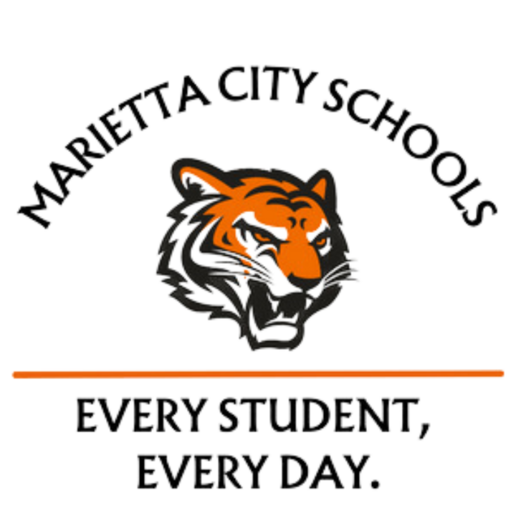Marietta City Schools kicked off its capacity-building discussion in a new District Literacy Committee on Jan. 27 with 52 attendees reviewing the complexity of equitable reading instruction from kindergarten through twelfth grade.
Attendance
The group, with 26 present in the Marietta High School cafeteria and 26 attending via Zoom, was predominately made up of district employees who teach in the classroom and their administrators.
Many shared their desire to meet students where they are, engage each child and better integrate enrichment into every level.
"I want to better reach my struggling readers without sacrificing engaging texts that meet their interests," shared Fifth Grade Teacher Jordan Caldwell. "I also want to better engage my high readers with texts that are appropriate for their age level."

Additional attendance from the public included Dr. Raven Cromwell, an assistant professor within the Marietta College Department of Education, and regional support specialists from the Ohio Valley Educational Service Center and the State Support Team Region 16.
Preparation
In December of 2021, Director of Curriculum and Technology Tim Fleming provided all staff the opportunity to volunteer for this stage of curriculum preparation; 49 individuals responded.
Within that response, while many had heard of the research fueling the Science of Reading, most were not familiar with upcoming dyslexia guidelines.

Prior to January's discussion, each committee member was asked to read "Teaching Reading is Rocket Science" by Dr. Louisa C. Moats.
 The most fundamental responsibility of schools is teaching students to read. Because reading affects all other academic achievement and is associated with social, emotional, economic, and physical health, it has been the most researched aspect of human cognition. Read more...
The most fundamental responsibility of schools is teaching students to read. Because reading affects all other academic achievement and is associated with social, emotional, economic, and physical health, it has been the most researched aspect of human cognition. Read more...
This reading then guided discussion within the cafeteria and online about students' experiences struggling to read and thoroughly comprehend passages.
"I struggled most of my life and still feel like I struggle," shared First Grade Teacher Bonnie Stalter. "It took me a long time to feel comfortable reading in front of people because I'm always afraid I'm going to pronounce the words wrong even to this day... but doing this LETRS training has opened up so much more that I feel like I'm more of a confident reader."
That confidence is what Sandra Kennell shared is the key motivator as she sees her junior high students struggle, too.
"Well as someone who teaches older students, eighth grade, what really stuck out to me and this is from the article that middle and upper-grade children who are weak readers can be brought up to level with the appropriate instruction," she said. "I love my eighth graders but bless their hearts if they can't read, they get so discouraged. And they feel like they can't, you know, move up."
Throughout the night, groups broke out to discuss how the article and Science of Reading research compare with their own instruction.
"What squared with you and what was different from what you were taught?" Fleming prompted.
While the group as a whole shared the understanding that teaching reading is just as complex as rocket science, when breaking down the components of how a brain learns to read, the terms can begin to sound somewhat like 'inside baseball' (the American slang referring to the minutia and detailed inner workings of a system that are only interesting to, or appreciated by experts, insiders and aficionados) even to those with years of experience teaching under their belts.
That's when the group turned to the supports within the room with questions of how to reach each student.
The group is next scheduled to meet on February 24 at 4:15 p.m. in the Marietta High School cafeteria.



